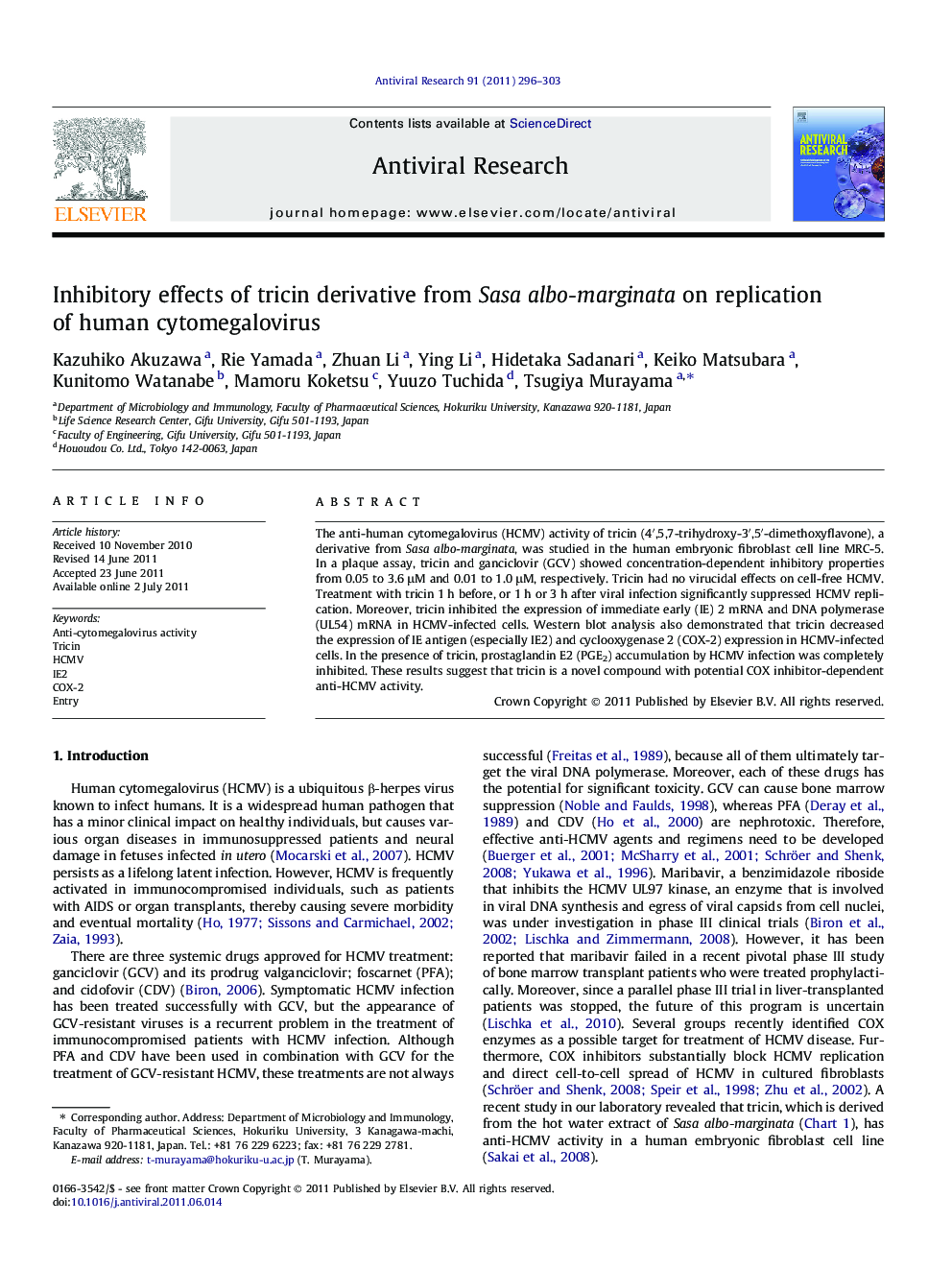| Article ID | Journal | Published Year | Pages | File Type |
|---|---|---|---|---|
| 2510279 | Antiviral Research | 2011 | 8 Pages |
The anti-human cytomegalovirus (HCMV) activity of tricin (4′,5,7-trihydroxy-3′,5′-dimethoxyflavone), a derivative from Sasa albo-marginata, was studied in the human embryonic fibroblast cell line MRC-5. In a plaque assay, tricin and ganciclovir (GCV) showed concentration-dependent inhibitory properties from 0.05 to 3.6 μM and 0.01 to 1.0 μM, respectively. Tricin had no virucidal effects on cell-free HCMV. Treatment with tricin 1 h before, or 1 h or 3 h after viral infection significantly suppressed HCMV replication. Moreover, tricin inhibited the expression of immediate early (IE) 2 mRNA and DNA polymerase (UL54) mRNA in HCMV-infected cells. Western blot analysis also demonstrated that tricin decreased the expression of IE antigen (especially IE2) and cyclooxygenase 2 (COX-2) expression in HCMV-infected cells. In the presence of tricin, prostaglandin E2 (PGE2) accumulation by HCMV infection was completely inhibited. These results suggest that tricin is a novel compound with potential COX inhibitor-dependent anti-HCMV activity.
► The anti-human cytomegalovirus (HCMV) activity of tricin was studied in the MRC-5 cells. ► Tricin significantly suppressed HCMV replication, but had no virucidal effect on cell-free HCMV. ► Tricin decreased the expression of IE antigen and COX-2 expression in HCMV-infected cells. ► Tricin is a novel compound with potential COX inhibitor-dependent anti-HCMV activity.
